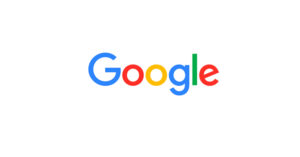This is not the first time that Facebook has been accused of something like this. Facebook keeps getting under the bus quite often because of its lenient content moderation policies, the way it handles, rather mishandles critical situations, its unwillingness to respond properly to anti-racism protestors, and its reluctance to advocate or put forwards its own rules and policies where high-profile politicians are concerned.
With the upcoming elections, Facebook has been trying hard to dodge these bullets, but the accusations end up finding it and hitting it again and again. But Google has been able to efficiently dodge all these bullets of accusations and intense scrutiny, even though it is not better than Facebook in the matters of transparency too.
Laura Edelson, a student of political ads and misinformation at New York University has recently how Google is getting a pass on transparency as no one talks about it at all. By diverting all the focus on its subsidiary YouTube and on how YouTube handles misinformation, hate, and violence-related content, or radical content on its platform, but when it comes to the services of Google that run paid ads, like Google Search results, Gmail, YouTube, and ads shown on websites all across the internet through Google Ads, nobody amongst the regulator, journalists, and the public seem to pay any attention!
Facebook at least gives a more detailed and comprehensive overview of how it moderates content generated by users and advertisers. But Facebook’s reputation has gone so much downhill over these past few years that no one finds it trustworthy enough, and this gives Google the perfect opportunity to hide behind Facebook and use it as a shield to deflect all the scrutiny.
According to Michael Clauw, a spokesperson for the research group ‘Tech Transparency Project,’ Google owns a larger share of the online ads market and has really loose standards of governing political ads. They do not even provide enough information about those political ads to the public. This can mean that Google is subjecting people to be manipulated by these misleading political ads without them ever knowing about it.
However, Google refutes these claims and says that it is deeply committed to delivering the highest standards of transparency, choice, and controls in the field of ads.
But the problem is that Google actually gives very little information about its political ads and discloses only some basic details about them. Sometimes, it also fails to detect political ads or advertisers, and that is a serious issue because it means Google may be subjecting American citizens to a lot of political misinformation through its various products all over the internet. This could have a serious impact on the upcoming 2020 elections.
Facebook has pulled in a lot of its digital political ad revenue in the US amidst the election campaigns, almost up to 60%. On the other hand, Google still has a hold upon one-fifth of the digital political ad market and has generated more than $240 million revenue.
Facebook’s ad tracking methods have reported that advertisers have spent around $1.7 billion as yet, but Google’s ad-tracking service says that the number is around $400 million. So, there is a huge discrepancy, and researchers and campaign experts think that these numbers do not paint the complete picture. It does not even tell which advertisers are trying to sway the voters away and which company is using this amount, on what issues, and where? Especially with Google, there is a lot of ambiguity.
According to Brendan Fischer, the director of federal reform at the Campaign Legal Center, the main problem that is occurring is that there are no laws that can make these platforms to reveal and make political ads publicly accessible. It is a self-regulatory effort, and this is what is affecting the transparency the most. Political ads on TV and radio are regulated by the Federal Elections Commission and Federal Communications Commission, but ads on the internet have no regulatory bodies. Each platform has its own policies, and this is what causes so many problems. These tech platforms have their own approaches to detect and determine what comes under a political ads umbrella, what advertisers need to reveal, how much information should be shared with researchers and users, and ways to enforce all these rules. This is kind of chaotic and non-schematic because it makes the researchers responsible to hold these platforms accountable for any kind of misinformation.
Another important issue is that due to Google’s narrowed definition of political/election ads, Google misses an important category of ads called Issue Ads. They address divisive political and social issues that are frequently targeted by bad actors. Facebook has a broader political ads archive, so its platform is not likely to become a target of these bad actors or cyber-attacks. It also makes Facebook more likely to control political ads related to misinformation as compared to Google.
This time also, political advertisers and bad actors are trying to use Google to target voters before the election.
Facebook gets roasted often for monetizing user data or for serving manipulative political communications, but Google also does the same. In fact, Google has more user data and it allows more political advertisers to use this data than Facebook does.

